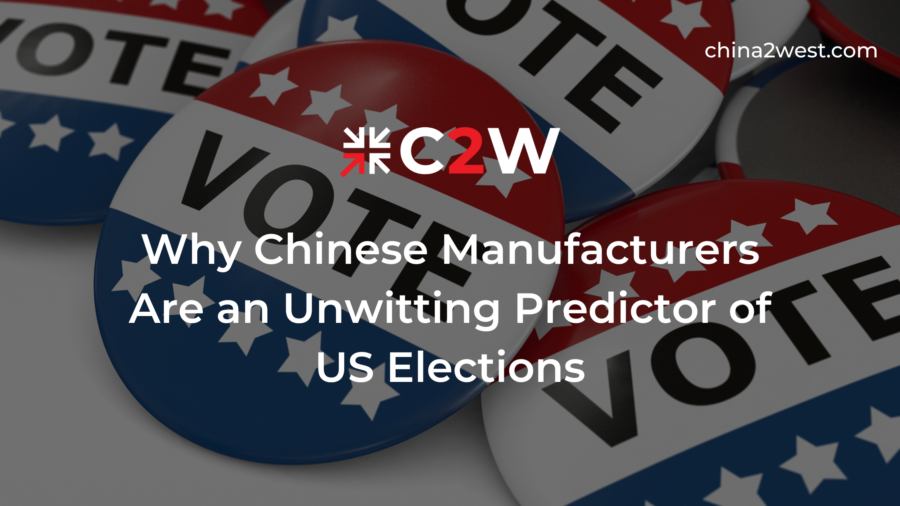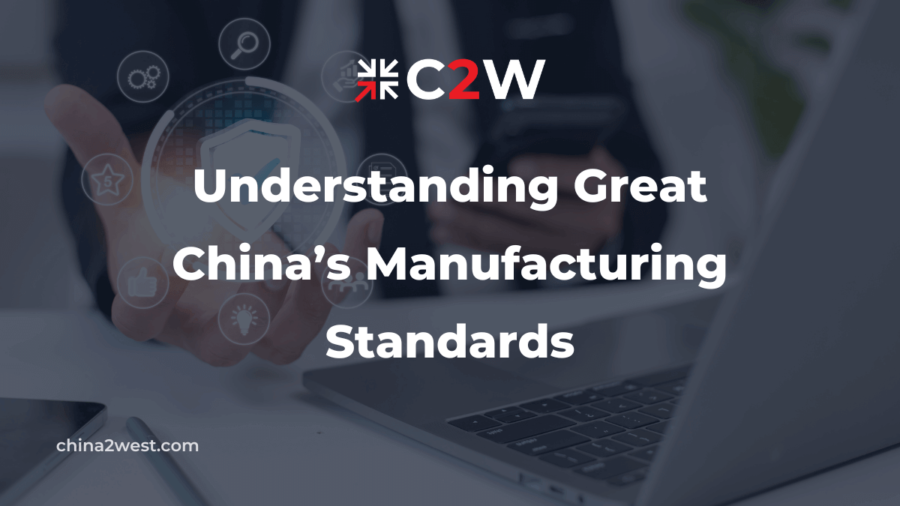In the intricate web of global trade, one peculiar phenomenon has emerged that may raise eyebrows: Chinese manufacturers, largely those based in the bustling city of Yiwu, are becoming an unwitting predictor of US elections.
In this article, we delve into the surprising connection between the manufacturing hub of Yiwu and the political landscape in the United States.
Yiwu – The Global Epicenter of Campaign Merchandise
Yiwu, a city located in Zhejiang Province, China, has earned its reputation as the world’s largest wholesale market. It boasts a vast array of goods, ranging from everyday items to unique novelties.
What makes Yiwu particularly intriguing in the context of US elections is its dominance in producing campaign merchandise for both major political parties.
Every four years, as the US gears up for presidential elections, the demand for campaign paraphernalia soars. Yiwu, with its extensive network of manufacturers, steps in to fulfill this demand.
From buttons and hats to banners and T-shirts, Yiwu is the go-to destination for political campaigns looking to adorn their supporters.
The Unlikely Connection – Campaign Products and Election Outcomes
While it may seem counterintuitive, there is a peculiar correlation between the success of campaign merchandise in Yiwu and the eventual outcomes of US elections.
The theory suggests that the party whose merchandise sells more briskly in Yiwu tends to have a competitive edge in the elections.
This phenomenon is not rooted in any mystical foresight but is rather a reflection of market dynamics. The popularity of campaign merchandise in Yiwu is indicative of the broader sentiment and support for a particular candidate.
It becomes a microcosm of the larger political landscape, offering a unique lens through which to gauge public sentiment.
Yiwu as a Barometer of Popular Opinion
In recent election cycles, the merchandise market in Yiwu has accurately predicted the winners of the US presidential elections.
The rationale behind this lies in the fact that the demand for campaign products is essentially a barometer of popular opinion.
As supporters eagerly purchase and display items endorsing their preferred candidates, it creates a ripple effect that reflects the prevailing sentiment.
Social media users in China have started paying attention to the trends in Yiwu, considering them as an unconventional but surprisingly accurate gauge of public enthusiasm for each candidate.
The reasoning is simple: a surge in demand for a party’s merchandise in Yiwu often corresponds with a surge in public support.
The Globalized Nature of Campaign Merchandise Production
The globalized nature of campaign merchandise production adds another layer to this fascinating connection.
In an era where supply chains are intricately woven across borders, the production of campaign materials is no exception. Yiwu’s role as a manufacturing hub for such products highlights the interconnectedness of the global economy and politics.
Both the Republican and Democratic parties, in pursuit of cost-effective and efficient manufacturing, turn to Yiwu.
This not only underscores the economic ties between China and the United States but also emphasizes the role of international trade in shaping the political landscape.
The 2016 and 2020 Elections – A Quirky Testament to the Trend
To add an intriguing twist to the connection between Yiwu and US elections, let’s examine the outcomes of the 2016 and 2020 presidential races.
Surprisingly, the trends observed in campaign merchandise production in Yiwu appeared to foretell the results of these pivotal elections.
In 2016, as merchandise adorned with the slogans and symbols of Donald Trump flooded the Yiwu market, it foreshadowed the unexpected victory he secured later that year.
Similarly, in 2020, the surge in demand for Joe Biden’s campaign products in Yiwu seemed to align with his eventual triumph.
While these instances might seem like an uncanny coincidence, it’s crucial to emphasize that this correlation is not scientifically based.
The connection between Yiwu’s merchandise trends and election outcomes should be taken with a healthy dose of skepticism, akin to a fun fact rather than a proven predictive tool.
Many also caution against reading too much into these observations, emphasizing that they lack the scientific rigor required for accurate predictions.
Nevertheless, the quirky alignment of Yiwu’s trends with election results adds a touch of amusement to the intersection of global trade and political fortune.
As we explore the curious link between Yiwu and US elections, the testament provided by the 2016 and 2020 election cycles serves as a captivating anecdote.
The seemingly fortuitous alignment of campaign merchandise trends in Yiwu with the outcomes of these elections offers a lighthearted perspective on the interplay between global trade and political events.
However, it is crucial to approach this correlation with a degree of caution, recognizing it as an entertaining observation rather than a scientifically validated predictor.
In the complex world of politics, where factors are multifaceted and dynamic, Yiwu’s inadvertent role as a harbinger of electoral results adds an unexpected layer to the ongoing dialogue about the globalized nature of commerce and its influence on democratic processes.
For those intrigued by the intricacies of global trade and seeking cost-effective manufacturing solutions in China, companies like C2W provide a valuable bridge between East and West. With nearly 20 years of experience as a British-owned Chinese manufacturer, C2W has been a reliable partner for Western companies navigating the complexities of overseas production. Contact us today!


